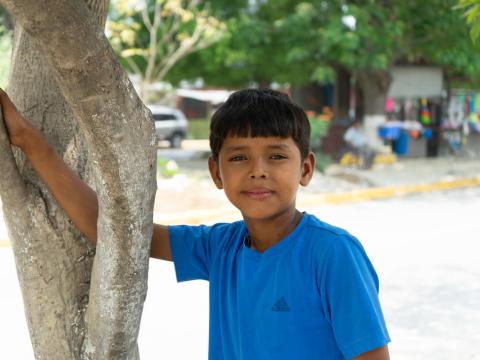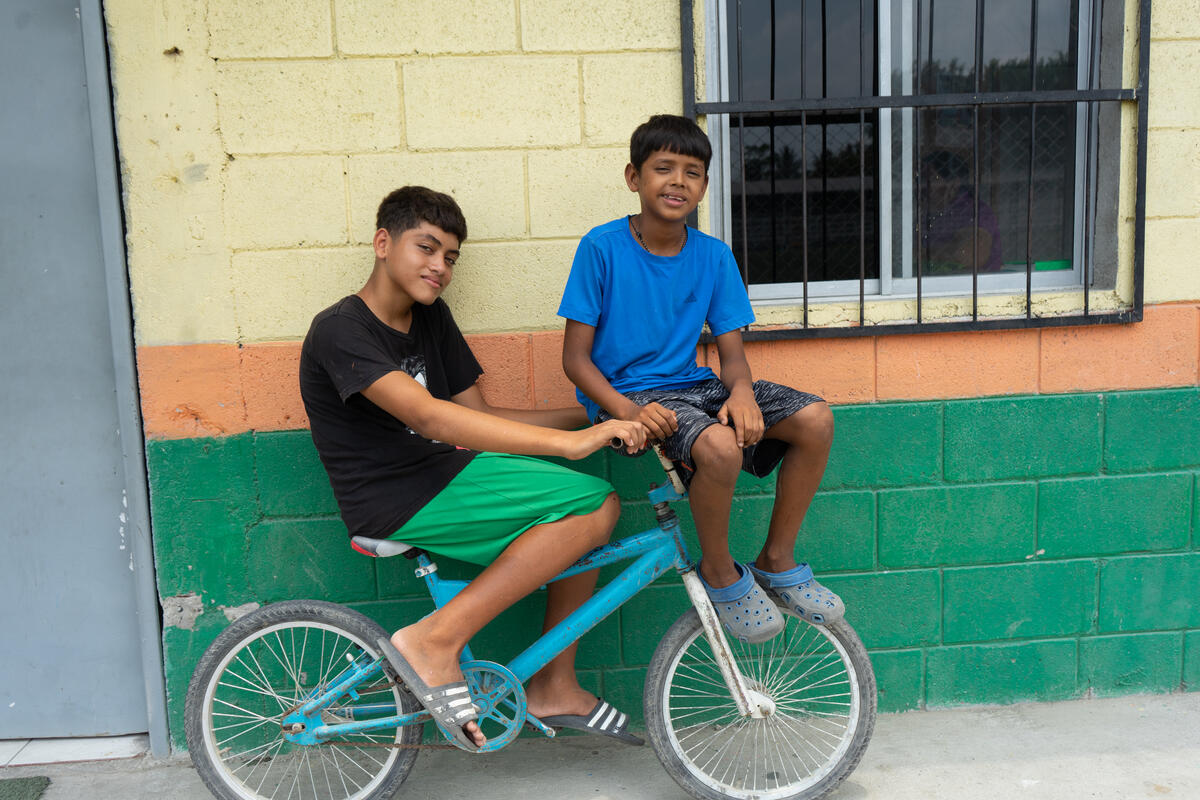Situation in the Dry Corridor pushes children to joining gangs

*David is one of the lucky children from his neighbourhood in Honduras’ capital, Tegucigalpa.
The eleven-year-old has grown up in ‘The Gangster’ sector, a neighbourhood where children are frequently exposed to gang violence, neglect and they’re preyed upon to join these gangs. However, David was determined to build a future away from the gang violence and focus on his education after meeting a social worker, Miriam.
“He has no support from his parents. He was a kid that the gangs could take because he didn’t have any support,” the Committee of Protection and Welfare coordinator, Miriam said.
“He tells me ‘I’m not going to be like them.’ In the morning he goes to his school, and in the afternoons he comes here so we can support him in his studies.”
The social workers also provide David with other basic support, such as food.
“We didn’t have any school supplies, they bought it for me, they bought me a backpack. Notebooks, pencils, colour and right now they gave me more food supplies. Miriam has taken my hunger away,” David said.

However, not all children growing up on the city’s fringes are as fortunate as David. Projected higher temperatures and increased extreme weather conditions are set to exacerbate existing water shortages, food insecurity and violence over land in rural areas. One in four people in Honduras is employed in the agricultural sector. Water stress is already high, with less than 14% of water systems in rural Honduras providing potable water, while farming communities have struggled to bounce back from the effects of on-going drought and recent hurricanes, which decimated crops and livelihoods. Such conditions have forced more farming families to migrate across borders or to urban areas within Honduras, such as the gang-controlled areas where David has grown up. The arrival of migrants can undermine social cohesion, as host populations face resource pressures and poverty, while children are at risk of being targeted by gangs for recruitment.
“Because there is no land and the means of production has been affected, people have to go around invading and have to settle in places where there is no legality … This generates any number of conflicts, and there is no stability or security,” a security expert in the Dry Corridor said.
*Name changed to protect child’s identity.